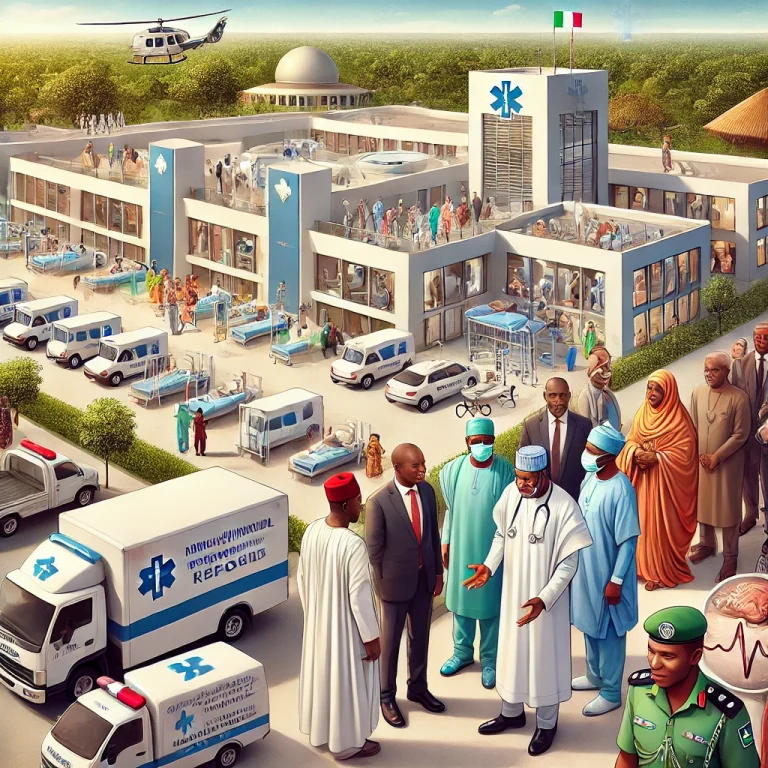Stakeholders in the health sector have called for collective action to address recurring issues of hospital bed scarcity and the complex referral system in Lagos and other Nigerian hospitals.
The call was made on Wednesday during a scientific conference organized by the Medical Guild in Lagos, themed: “The No Bed Conundrum and Safe Referral: Exploring an Integrated & Effective Referral System in Lagos.”
Speaking at the event, the Chairman, Dr. Ibrahim Mustafa, Permanent Secretary of the Lagos State Primary Healthcare Board, said the shortage of hospital beds and the fragmented referral system reflect systemic gaps in coordination.
Mustafa urged the implementation of an integrated referral system where doctors are fully aware of their roles, noting that this would improve patient outcomes.
“We have lost lives, particularly mothers, because of this fragmented referral system, which contributes to high maternal mortality. This is an interdisciplinary issue and must be addressed collectively,” he said.
He commended the guild for its commitment to enhancing the health of Lagos residents and called for pragmatic solutions to be proposed to the government and implemented in health facilities.
Delivering the keynote speech, Dr. Babayemi Osinaike emphasized the need to leverage technology to improve services at primary health centres. He urged collaboration between state, federal, and private hospitals to reduce bottlenecks in patient referrals.
Osinaike recommended the introduction of a statewide telemedicine policy, allowing patients to consult doctors before visiting hospitals.
“There are no federal or state patients in Lagos; referrals can happen seamlessly from Lagos University Teaching Hospital (LUTH) to Lagos State University Teaching Hospital (LASUTH), or from LASUTH to private hospitals providing the same services. Patients can consult doctors through websites or designated phone lines, without physically visiting the hospital. COVID showed us that this is possible,” he said.
He added that a platform should be created for doctors to interface with colleagues in other hospitals before referring patients. “In developed countries like the U.S. and UK, general practitioners play this role. Our Primary Health Centres can serve as our GBs if they function effectively,” he said.
Prof. Adetokunbo Fabamwo, Chairman of the Board of Trustees of the guild and Chief Medical Director of LASUTH, called for synergy between doctors in public and private hospitals to address challenges in emergencies and referrals.
Fabamwo noted that the divide between private and public doctors is becoming more visible, highlighting the need for unity to close these gaps. He also commended the outgoing leadership of the guild for maintaining a coordinated approach in resolving issues affecting medical practitioners in the state.
The First Lady of Lagos State, Dr. Ibijoke Sanwo-Olu, represented by Dr. Omolara Agbaje, Medical Director of Apapa General Hospital, described the conference as a sustainable platform for stakeholders to provide workable solutions to health sector challenges, including bed shortages.
She commended the guild for establishing the platform, which supports the welfare of health professionals and encourages them to uphold ethical standards.
Earlier, Dr. Moruf Abdulsalam, Chairman of the guild, said the perceived scarcity of beds and the complexity of referrals are stark realities affecting patient care.
“The conference is our collective effort to tackle these issues head-on and explore practical solutions using technology, policy reforms, and inter-institutional partnerships,” he said.


